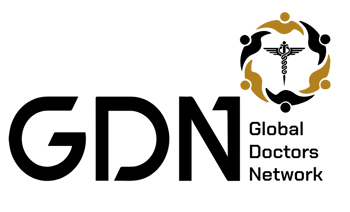Portfolio Guidance
This guide provides you with a breakdown of the different types of portfolio depending on specialty or stage and what they comprise of.
Every doctor working in the UK should have access to an online portfolio. Your portfolio serves as a digital repository where you can document and store evidence for annual appraisals, reviews, and GMC revalidation. It also plays a crucial role in supporting training and job applications.
This portfolio is more than just a collection of documents; it highlights your achievements, showcasing your competencies, knowledge, and both personal and professional skills. By maintaining an organised and comprehensive portfolio, you can effectively demonstrate your progress and readiness for future opportunities in your medical career.
For doctors, particularly internationally-trained medical graduates (IMGs) who may lack access to an e-portfolio, it is essential to maintain physical evidence of professional development. This includes certificates from conferences, documentation of Quality Improvement Projects (QIPs), and any relevant achievements from medical school or work already completed in your medical career.
Keeping a well-organised collection of these materials is crucial, as they serve as tangible proof of your ongoing commitment to professional growth and competency. This documentation not only supports your annual appraisals and GMC revalidation but also enhances your applications for training and job opportunities. The portfolio becomes particularly important when considering training programmes and access to more senior roles as it helps you to demonstrate your skills and talent at work. Training programmes and portfolio pathways (CESR) to reach consultant level require commitment and regular use of your portfolio to demonstrate building competencies across both clinical and non-clinical skills.
What are the different types of portfolio?
Most Trusts can give you access to a portfolio if you do not have one, typically through platforms like Horus or NHS E-portfolio. If you are enrolled in a training programme you may be given access to a specialty specific e-portfolio on another platform such as Fourteen Fish, JRCPTB, ISCP or Kaizen. Some medical colleges will enable you to buy access to their specific portfolio even if you are not in a formal training programme. These tools are designed to help you document your progress, showcase your achievements, and facilitate your ongoing professional development within your chosen specialty.
What each portfolio contains?
Assessments:
Every portfolio contains forms that you can complete to showcase your progression with knowledge and skills.There are different types of assessments and like many aspects of medicine in the UK they are given abbreviations which can be confusing. They are often measured against entrustment scales. The different types of assessments and measures will be explained in more detail here.
Library:
Most e-portfolios have a library or documents section. This is where you should keep copies of certificates you have received from courses/conferences/teaching that you have attended. You can add in anything that you have achieved in the past as well as any new activities. You should also upload any thank you cards or compliments from patients or colleagues to this section of your portfolio.
Multi-Source Feedback/Team Assessment of Behaviour:
You are required to show evidence of your personal and professional behaviour as part of annual appraisals. This is used to gain feedback from colleagues as well as patients depending on the specialty. This comprehensive feedback is invaluable in evaluating your performance, enhancing interpersonal skills and identifying areas for further development..
Personal Development Plan:
Your personal development plan is designed specifically for you, focusing on your goals and career. While your supervisor may provide guidance, this plan ultimately centres around your aspirations. If you have a particular specialty in mind, be sure to include relevant courses and activities that align with that specialty. Additionally, if you require a specific qualification, incorporate it into your plan as well.
Feel free to add personal goals—such as learning a new skill like baking or taking up a new sport—alongside your professional objectives. This will help make the plan truly unique to you. It is advisable to update your personal development plan every 6 to 12 months.
Join the Community
Reach out for support on UK training pathways, mentorship, and research opportunities tailored for you.
Email Address
info@globaldoctorsnetwork.com




